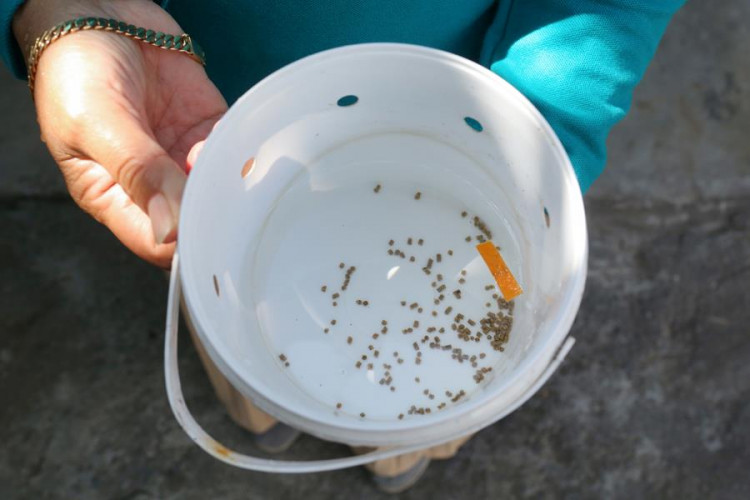It has been discovered by researchers in Indonesia that they may combat disease-bearing mosquitoes through the cultivation of specific kinds of the bug carrying specific bacteria that inhibit viruses such as dengue fever from developing inside the mosquito's body.
An extremely common bacteria, Wolbachia, can be found in the natural environment in 60% of insect species, including some mosquitoes, fruit fly larvae, moths, dragonflies, and butterflies.
Based on studies by the World Mosquito Program (WMP), a non-profit organization that launched the research, Wolbachia is not detected in the dengue-carrying Aedes aegypti mosquito, which is responsible for the disease.
The "good" mosquitoes are being bred, Purwanti, a researcher with the World Mosquito Program, said. "Dengue-carrying mosquitoes will mate with Wolbachia-carrying mosquitoes, resulting in the production of Wolbachia mosquitoes - the 'good' mosquitoes," Purwanti said.
A cooperative project undertaken by WMP at Australia's Monash University and Indonesia's Gadjah Mada University has been releasing lab-bred Wolbachia mosquitoes since 2017 throughout a few dengue fever "red zones" in the Indonesian city of Yogyakarta, the WMP said.
The results of the research, which were published in June by the New England Journal of Medicine, showed that deploying mosquitoes infected with Wolbachia might cut dengue incidence by as much as 77% and hospitalizations by as much as 86%.
WMP head researcher Adi Utarini, who has been working on Indonesia's Eliminate Dengue Program since 2011, said "we have confidence in this technology, particularly for locations where the Aedes aegypti mosquito is the most significant (infection) component."
As reported by the World Health Organization (WHO), global dengue infection rates have risen dramatically in the last few years, with approximately half of the world's population being at risk of contracting the disease.
Every year, an estimated 100 to 400 million illnesses are reported, latest scientific data show.
"All three of my children have been infected with dengue and have been admitted to the hospital. When I think about how to keep my village healthy and clean, it is something that is always on my mind," Sri Purwaningsih, a 62-year-old man whose family participated for the WMP program, said in quotes by Reuters.






